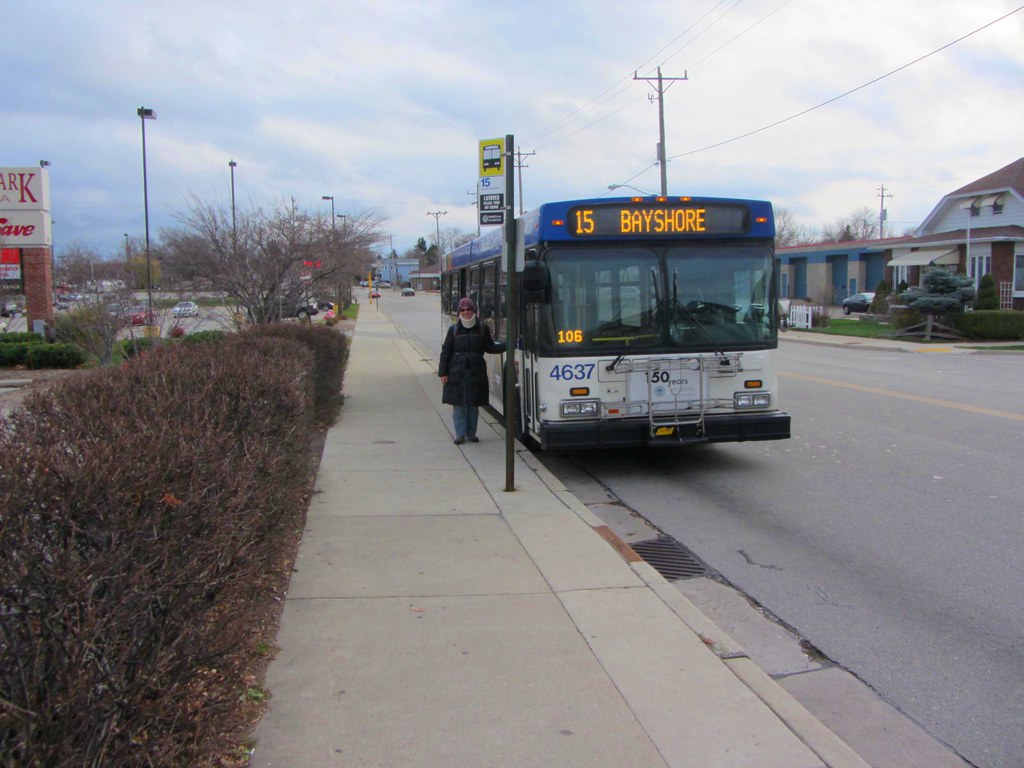Milwaukee County Transit System leaders are mulling cuts to 16 bus routes next year that would cripple the mobility of commuters, college students, and communities of color — all because state officials can't agree on how to close a $5.9 million budget gap.
Service cutbacks supposedly would affect only 3 percent of riders and are weighted more toward suburban commuters — who are more likely to own a car than residents of Milwaukee's poorer neighborhoods, according to MCTS officials. Yet suburban bus routes have been crucial in helping inner-city residents connect with job opportunities in the county's far-flung neighborhoods, according to a University of Wisconsin-Milwaukee study
The study, which Streetsblog reported on last October, polled workers at 700 employers that collectively employed 15,000 people; the firms had only recently become accessible by bus. Eighty-seven percent of the survey respondents said that the bus routes were extremely important for their ability to maintain their employment; 66 percent said that they used the bus primarily to get to their jobs, and 42 percent said that would have to quit if the bus routes were eliminated.
“The region will not prosper as long as large areas of Milwaukee remain impoverished, cut off from areas where job growth is occurring,” wrote urban studies professor and study author Joel Rast.
MCTS insists that the service cuts won't endanger the livelihood of vulnerable Milwaukee residents.
"If you look at us being stewards of services for low-income, minority populations that have endured 400 years of racism, it's hard for us to say we're going to take two miles of a bus route off of this road in the county so that we can preserve park-ride service for — and I'm overgeneralizing — a suburbanite who can afford their own car," Dan Boehm, MCTS president and managing director, told the Journal Sentinel.
But transit-union leaders, who have been negotiating with MCTS after their contract expired in March 2018, say that the cuts will hurt local workers.
"Don’t talk about jobs if you’re not talking about transportation; it doesn't make any sense," James Macon, President of Amalgamated Transit Union 998, told the Journal Sentinel. "All the jobs are outside of Milwaukee County."
The state government has bickered over the transit budget all summer.
Republicans, who control the legislature, had proposed a one-time pot of $90 million to pay for local road reconstruction, but Democratic Gov. Tony Evers vetoed the measure, shrinking the amount to $75 million and proposing that the money be allocated to other projects, such as more buses, harbor dredging, and a Milwaukee streetcar project. That incensed Republican Senate Majority Leader Scott Fitzgerald, who threatened to override the veto.
Milwaukee leaders said they needed state lawmakers to get on board and maintain existing services so that the county won't be forced to make painful choices next year.
"The county’s ability to adequately fund and maintain what we would like to is diminishing every year," Milwaukee County Executive Chris Abele told Fox 6 in a statement. "We need adequate support from the state or the option to use new tools to generate necessary funding going forward in order to put both Milwaukee County and all of Wisconsin on a path to a sustainable future."
The MCTS says that the budget impasse will necessitate the elimination of six Freeway Flyer routes, five shuttles, four bus routes on college campuses, and the Route 52 Clement-15th Avenue line. Two other bus paths, Route 55 Layton Avenue and Route 60 6th Street, would need to shorten service along their routes and curtail transit to Brewers home games, the Wisconsin State Fair, Summerfest, and several ethnic festivals. The proposed reductions come on top of cuts that went into effect this year, including the elimination of five routes that served school districts and the shortening of the "JobLines" extension on Route 57.






